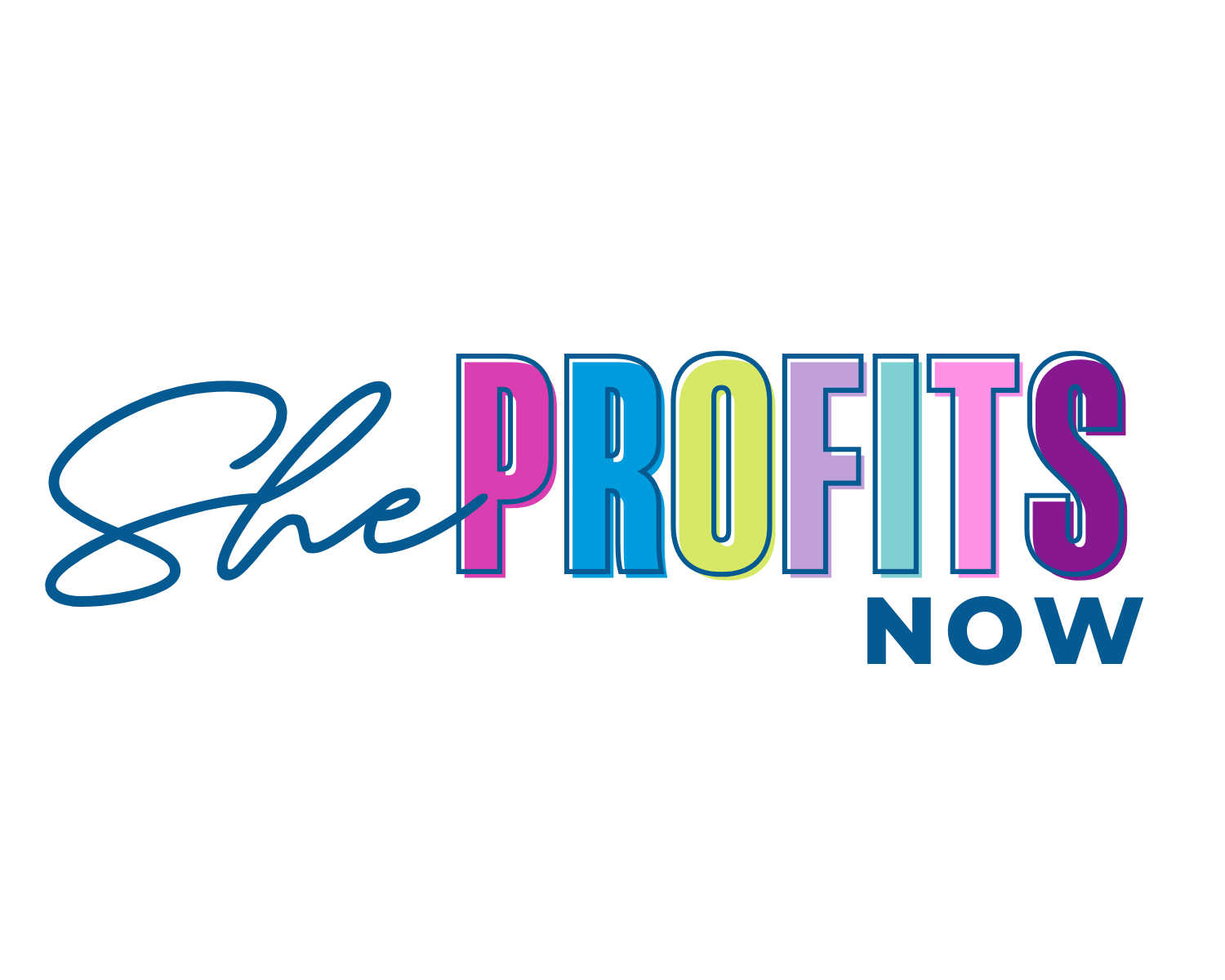She Profits Now and Financially Fabulous are more than financial coaching or accounting services — they
are movements.
At their core, they reflect a deep devotion to empowered, profit-driven, holistic business leadership. You aren't just showing clients how to manage money. You're teaching them to rewire their beliefs, reclaim their power, and run retail empires that don’t just make money — but make sense for the life they actually want to live.
Our combined mission
is to ensure that every entrepreneur we work with not only stays compliant but also has the tools and strategies to maximize their profitability and financial health.
By streamlining financial systems, providing creative tax strategies, and offering hands-on advisory support, we help businesses turn financial challenges into opportunities for growth and success. We are committed to delivering timely monthly financial statements, concierge-level collaboration, and using a project and task management application to ensure organized, efficient communication.



Who We Serve
We work with independent retail and boutique business owners in the creative industries, including fashion, beauty,
and lifestyle brands.
Our clients are passionate about their businesses but often feel overwhelmed by the complexities of managing their finances. Many lack formal financial training or time to focus on the intricacies of accounting and tax planning, yet they understand that financial clarity is key to growing their business.
At She Profits Now, we empower entrepreneurs by offering personalized financial services as a critical tool in their Financially Fabulous® decision-making. By providing clear financial reports, tailored tax strategies, and hands-on accounting support, we give business owners the clarity they need to make informed decisions. In partnership with Financially Fabulous®, our services complement the coaching and mentorship that help entrepreneurs build a strong financial foundation, enabling them to scale their businesses with confidence and purpose.
Dedicated to helping independent retail and boutique business owners thrive financially
She Profits Now
Core Services
01. Retail-Specific Accounting
& Financial Reporting:
We specialize in creating retail and brand-specific financial statements, designed with your unique business needs in mind. Our customized reports, paired with our financial health dashboards, make it easy for you to understand your numbers at a glance. From tracking your profit margins to optimizing cash flow, we ensure you have clear, actionable data to make informed business decisions.
02. Creative Tax Strategy & Preparation:
Our tax strategies are tailored specifically for the retail and creative industries, offering comprehensive solutions that work within IRS and state tax laws. We help you maximize savings and reduce liabilities with creative, proactive approaches to tax planning. From deductions to credits, we ensure you get the most out of your tax filings while staying fully compliant.
03. Sales Tax Compliance &
Nexus Reporting:
Navigating multi-state sales tax laws can be complicated, but we simplify the process. Our nexus audits and compliance solutions ensure that your business is adhering to tax regulations in every state you operate in, helping you avoid penalties and stay on top of your obligations.
04. Professional Services in Partnership with Financially Fabulous®:
While She Profits Now provides the essential accounting and tax services, Financially Fabulous® partners with us to offer coaching, mentorship, and business strategy that help you scale your business with clarity and confidence. Together, we offer a seamless approach to financial health and growth, from managing your day-to-day accounting to empowering you with actionable strategies for long-term success.
Dedicated to helping independent retail and boutique business owners thrive financially
Why She Profits Now?
Sister to Financially Fabulous®:
"She Profits Now works closely with Financially Fabulous® to provide a full suite of services that help retail entrepreneurs thrive. While She Profits Now handles your accounting, tax strategy, and compliance, Financially Fabulous® offers coaching and business mentorship to help you make data-backed decisions and lead with financial confidence."
Retail-Focused Expertise:
"We understand the unique challenges of running a boutique or retail business. Our services are customized specifically for retail and creative brands, offering solutions that fit your needs and growth stage."
Holistic Financial Solutions:
"From tax strategy to day-to-day accounting, we offer all-encompassing support that ensures your business stays financially healthy and compliant. Our seamless partnership with Financially Fabulous® ensures that you also get the strategic mentorship needed to grow sustainably."
Family-Led Expertise:
"Led by a family team of experts—Christyne Gray, Savannah Gray, and Samantha Donovan—She Profits Now combines years of experience with a personal, hands-on approach to each client. Our team is committed to providing actionable insights, ensuring that your business has the clarity and support it needs to thrive."
Simplified Processes:
"We streamline complex financial systems into clear, understandable reports and dashboards, making it easy for you to know your numbers and focus on growing your business."
Dedicated to helping independent retail and boutique business owners thrive financially
“
Working with She Profits Now was
a game-changer.
They helped me save thousands in taxes while keeping me compliant.
Their strategic advice was exactly what my business needed to grow. I now have financial clarity
and can make informed decisions with confidence.
“
She Profits Now took the stress away.
I was overwhelmed by taxes and bookkeeping, but She Profits Now took the stress away.
They helped me optimize my tax strategy and streamline my financials, making it easier to
focus on running my business.



Our Approach
01. Retail-Specific Accounting
& Reporting:
We specialize in retail-specific financial statements and health dashboards that are designed to make it easier for you to understand and manage your numbers, so you can focus on growing your business.
02. Creative Tax Strategies:
Our creative tax strategies are customized for the retail industry, ensuring that you maximize savings and comply with IRS and state tax laws.
03. In Partnership with
Financially Fabulous®:
We collaborate with Financially Fabulous® to offer a complete solution that includes professional services (accounting and taxes) paired with coaching, mentorship, and business strategy to guide you toward long-term profitability and success.
04. Financial Clarity
& Simplicity:
We help you make sense of your finances with clear, actionable reports and financial health dashboards that keep you on track with your goals.
05. Compliance-Focused:
Rest easy knowing your business is compliant with all local, state, and federal tax regulations, with the added benefit of expert guidance from Financially Fabulous® to navigate the next stages of growth.
06. Profitability at the Core:
We focus on optimizing your profit margins, reducing unnecessary costs, and creating a sustainable path to business growth with strategic input from Financially Fabulous®.
She Profits Now & Financially Fabulous®
Your Business, Your Way: A Holistic Approach to Financial Services
Dedicated to helping independent retail and boutique business owners thrive financially

Your Integrated, Holistic Path
to Financial Success
At She Profits Now and Financially Fabulous®, we believe true success goes beyond numbers. Our approach combines financial expertise, strategic coaching, and mindset shifts to help you build a thriving, profitable business with confidence and clarity.
We offer a 360-degree solution that integrates bookkeeping, tax strategy, and Financially Fabulous® Coaching—empowering you to grow your business while staying aligned with your personal and professional goals.
What You’ll Receive
with Our Integrated Financial Experience:
Timely Financial Statements & Health Dashboard
Clear, actionable insights with monthly financial statements and a customized Financial Health Dashboard.
Revenue Mapping for Strategic Growth
A framework for optimizing your revenue and aligning your financial goals with your business vision.
Inventory Optimization & Buy-to-Sell Planning
Data-driven strategies to optimize inventory and improve turnover, tied to your revenue goals.
Cash Flow & Profit Planning
Using our 40/20/40 Cash Flow Protection Rule to manage expenses, reduce debt, and optimize owner pay.
Sales Tax Filing & Compliance
Ensure compliance with Sales Tax Filing and Nexus Oversight.
Income Tax Strategy & Compliance
Maximize savings with expert insights on S-Corp and LLC tax structures.
Financially Fabulous® Coaching
Personalized coaching for strategic guidance and mindset shifts, empowering long-term success.
NEWSLETTER
BE PART OF A COMMUNITY THAT IS
Totally Awesome

View our Terms and Conditions here. © She Profits Now 2025. All Rights Reserved.